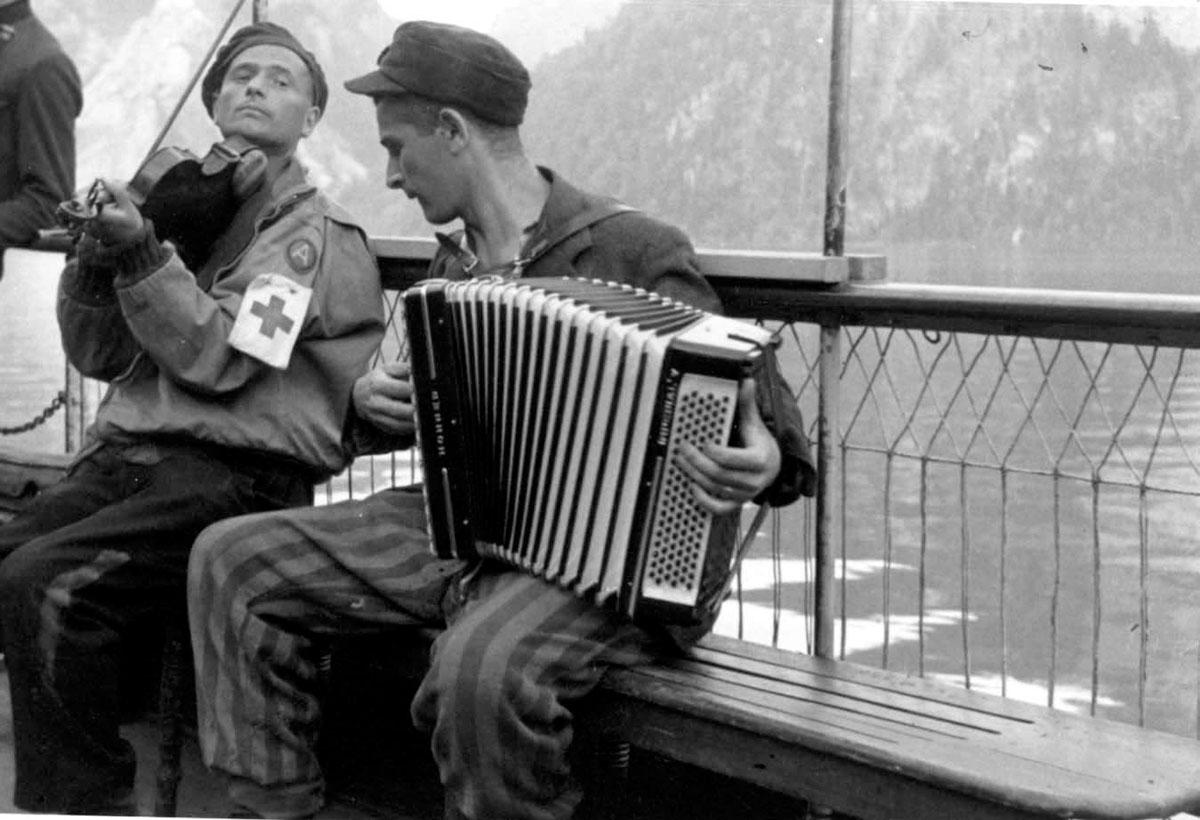“The camp guard who came to open the gate said, ‘You are free and you can leave.’ …No one moved, no one went out. We did not laugh, we were not happy, we were apathetic - and the Russians came. A general came in, he was Jewish. He told us that he was delighted to find that there were still people alive in the camp. He started to cry; but we didn’t. He wept and we didn’t.”
Bela Braver, deported to Auschwitz, liberated from Lichtewerden, Czechoslovakia, by the Red Army.
On VE Day there was dancing in the streets of New York; in Moscow salvos of canons were fired. There was no dancing in the camps, though, and not only because there were no streets. For those Jews who survived, the day of liberation was a difficult one.
First, it was physically difficult. By the end of the Nazi era, the Jews were at varying degrees of physical deterioration. On liberation day many just collapsed — they simply lay on the ground and stared at the sky.
Second, it was emotionally exhausting. The Jews had been living in terror for years, frozen in fear. Toward the end the tension increased, for as liberation approached the chances of survival lessened. Camp guards informed prisoners they would not be left alive. And if earlier fears had not been debilitating enough, those in hiding became more anxious as the battles around them raged.
Third, liberation day was the first day of existential crises. If up until then all efforts had been expended on the struggle to survive — until the evening, the morning, or even for one more minute — on liberation day life expectancies jumped from days or weeks to decades. The struggle to survive from one moment to the next had deflected attention from the world they had lost: their family and friends, their occupations and habits, their neighborhoods and their possessions. All of these had been taken from them long before liberation, but now they were forced to face the emptiness and try to build something new. While the victors danced in the streets, and the vanquished gathered up the broken pieces and began to look ahead, the survivors prepared themselves for — what exactly?
Some of the soldiers who liberated the survivors were Jewish, which made for highly emotional meetings. Where possible, the liberators extended assistance, but in most cases the willpower that had enabled the survivors to stay alive until liberation was also what kept them going after it.
During the days and weeks following liberation there were instances in which survivors identified Germans who had tortured them, and killed them. They regarded this as a matter of justice. Still, hardly any wide scale systematic vengeance was wrought on the general or German population, a singular historic phenomenon that merits study.
Many survivors initially made their way back to what had once been their homes. But their houses had already been taken, and the streets were full of ghosts, so they left. They dispersed throughout the globe, including Palestine. This “surviving remnant” numbered about half the Jewish population in Palestine, and their absorption took place precisely during Israel’s War of Independence. Thus upon arrival, Holocaust survivors did not find peace and tranquility; rather they immediately became involved in the young country’s struggle to defend and build itself. They succeeded in their endeavors, built new families and played a significant role in the development of Israeli society — in economics, security, education, industry, academe, science and technology, art and public affairs. They were also the first to seek to perpetuate the memory of the Holocaust.
The liberation story is, therefore, not the happy ending to a sad story, but rather a troubled story in and of itself. The successful conclusion to the struggle for physical survival gave way to the beginning of a longer struggle to cope with the emotional scars that would remain with them for many years to come.







